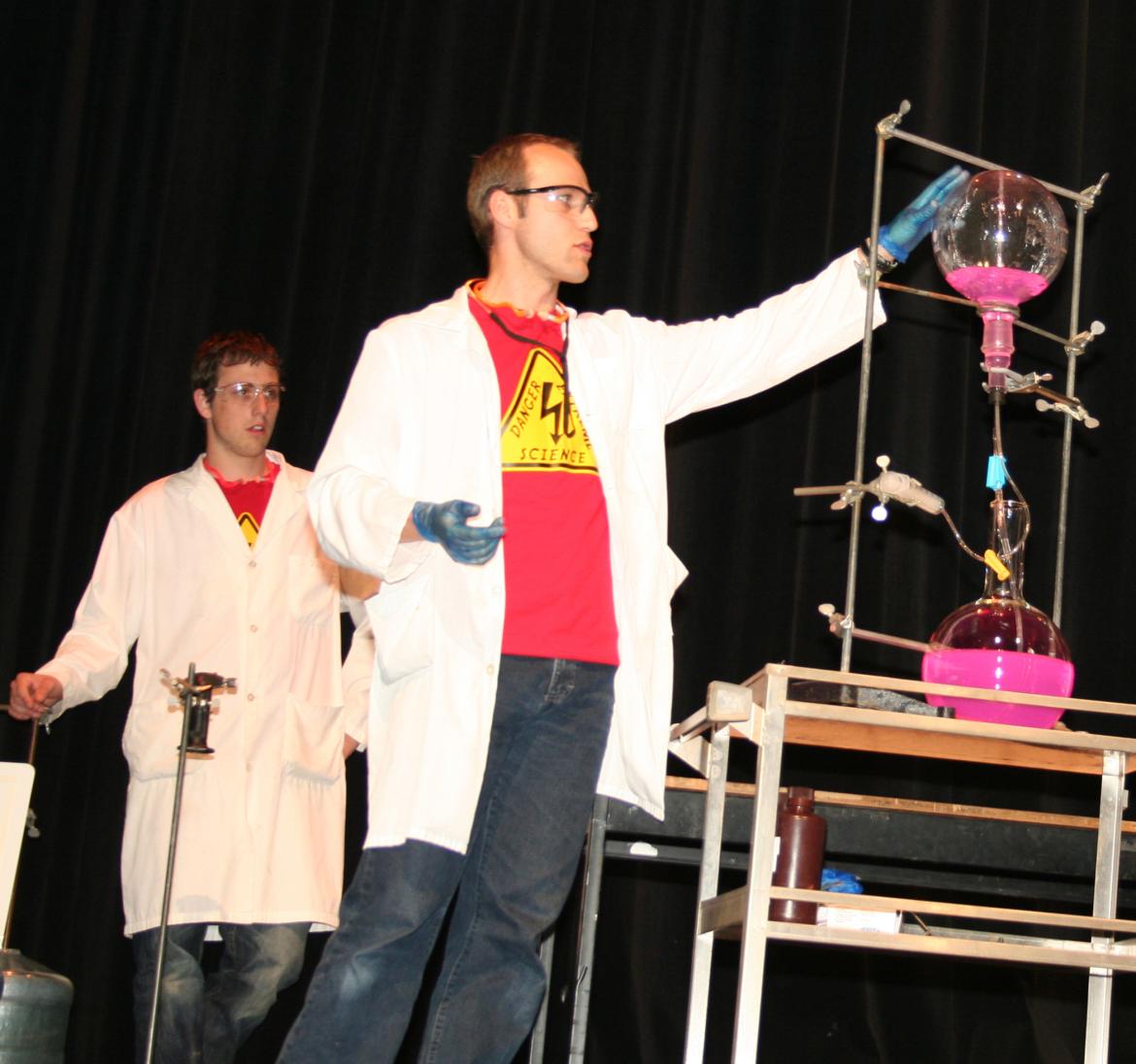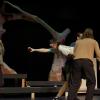
May 10, 2011 - 9:00am
Exciting science demonstrations involving explosions, implosions, flying arrows, fire, levitation, and lightning will be featured at the third annual Extreme Science show at Vancouver Island University.
The show gets underway Thursday, May 19 in the Malaspina Theatre at VIU’s Nanaimo campus at 7 pm.
“It’s a fun, entertaining show that appeals to all ages and features demonstrations from VIU’s Physics and Chemistry departments,” says Ray Penner, Physics professor.
Extreme Science is a unique fundraiser for LED Africa, a charity started by Penner. The nonprofit organization aims to provide solar-powered lighting systems to rural secondary schools in Malawi, Africa. Penner developed a connection with Malawi when he taught there 20 years ago.
“Many of the rural secondary schools in Malawi have evening study sessions where they use kerosene lighting,” he says. “These sessions are typically sporadic both because of the cost and the limited availability of kerosene. In addition, the smoke from the kerosene lanterns causes health concerns.”
In 2009, Penner and his colleagues from the University of Malawi set up a test system at a school using energy efficient LED lights powered by a solar panel on the roof. The total power required for a 50-student classroom is about 40 watts, which keeps expenses low.
After a positive response from the test school, Penner created LED Africa. Lighting systems were installed in classrooms at three schools, with the help of technicians from the University of Malawi.
The solar powered lighting systems provide regular lighting in the evening at these schools. As a result, the average pass rate at the three schools on the national exams rose from 31 per cent to 55 per cent. In addition, for the first time in the history of two of the schools, students qualified to go to the National University of Malawi. “The impact that the lighting systems had at the schools was much greater than what we expected,” Penner says.
In September 2010, lighting systems were installed at six additional rural secondary schools. Each classroom lighting system consists of a solar panel, a battery with controller and LED lanterns that provide lighting for 50 students for up to three hours per evening. The cost to set up a classroom is $1,200.
The single solar panel, the battery, and cables which are required for each classroom are purchased from suppliers within Malawi. The battery box, which holds the battery and the controls, as well as the stands for the LED lanterns are built by local Malawian carpenters. The lanterns are all assembled in Malawi by Malawians.
After the system is installed, local Malawian staff is responsible for maintenance visits and replacing the batteries. The schools pay an annual fee of $100 per classroom which covers these costs. It is typically less than what the schools currently pay for lantern fuel.
“The key for me is that the system is built by Malawians and maintained there,” says Penner. “The annual cost of running this lighting is less than what the schools pay for kerosene and therefore the schools can cover all the future maintenance costs. It’s a long-term system.”
Why does Penner focus his efforts on Malawi? “I have experience living and working in Africa and have some technical expertise. This is the way I can make a significant impact. So why not?”
Penner says the Extreme Science show has proven to be an excellent fundraiser for LED Africa and provides an opportunity for science faculty at VIU to show the local community the “cool side” of science.
Besides ticket sales, local companies support the show and LED Africa by each contributing enough funds to install one classroom lighting system in Malawi.
This year’s Extreme Science show is sponsored by Herold Engineering Ltd., Levelton Consultants, Anderson Civil Consultants Inc., J.E. Anderson &Associates, Fairwinds Golf Club, and VIU.
Shows are held during the day for elementary school children and for the public in the evening at 7 pm in the Malaspina Theatre at VIU’s Nanaimo campus. Tickets are $10 and available at Kool&Child #102-2517 Bowen Rd. For questions about Extreme Science email: extreme.science@viu.ca. For more information on the Malawi project check out www.LEDafrica.org.
Tags: In the Community






